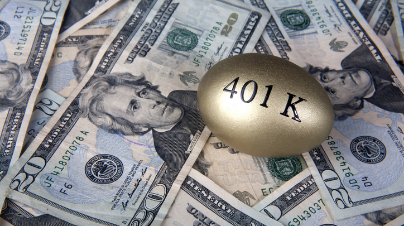The dream of retiring early is one that many people share. The idea of leaving the workforce while you’re still young enough to enjoy your golden years is appealing. However, this dream requires careful planning and financial discipline. One of the most common questions that arise when considering early retirement is, “How much money should I save to retire early?” This blog post aims to provide some insights into this question, helping you plan for an early retirement.
Understanding Early Retirement
Before delving into the specifics of how much money you need to save, it’s essential to understand what it means to retire early. Generally, retiring before the age of 65 is considered early retirement. However, some ambitious individuals aim for financial independence even earlier, in their 40s or even 30s.
To retire early, you need a substantial nest egg that can support your lifestyle for a longer period than traditional retirement planning would require. This means saving more during your working years and investing wisely to grow your retirement fund.
Calculating Your Retirement Needs
The first step in determining how much money you need to save for early retirement is calculating your anticipated expenses during retirement. These expenses will vary greatly depending on your desired lifestyle and where you plan to live after retiring.
Start by estimating your annual living expenses in today’s dollars, including housing costs (mortgage or rent), food, healthcare costs, travel plans, hobbies and other personal expenses. Then consider inflation over time – a general rule of thumb is to assume a 3%-4% annual inflation rate.
Next, consider any income sources you’ll have during retirement like Pension, Social Security benefits or rental income. Subtract these from your annual expenses to determine how much income needs to come from your savings each year.
The 4% Rule
A popular guideline used in retirement planning is the 4% rule. This rule suggests that if you withdraw 4% of your retirement savings in the first year and adjust this amount for inflation each subsequent year, your savings should last for 30 or more years.
For example, if you need $40,000 per year to cover your expenses after other income sources, you would need a nest egg of $1 million (since 4% of $1 million is $40,000). However, if you plan to retire significantly earlier than 65, you may want to use a lower withdrawal rate to ensure your money lasts longer.
Investing for Early Retirement
Saving alone is often not enough to accumulate the large nest egg required for early retirement. Investing is a crucial part of the equation. The power of compound interest can significantly increase your savings over time.
Consider investing in a diversified portfolio that includes stocks and bonds and annuities. Stocks offer higher potential returns but come with more risk, while bonds are generally safer but offer lower returns. A financial advisor can help you create an investment strategy that aligns with your risk tolerance and retirement goals.
Healthcare Considerations
One significant expense that many people overlook when planning for early retirement is healthcare. If you retire before age 65, you won’t be eligible for Medicare and will need to find another source of health insurance. This could be through a spouse’s employer-sponsored plan or purchasing coverage on the individual market.
The cost of health insurance can be substantial and should be factored into your retirement savings goal. Additionally, consider setting aside funds for out-of-pocket healthcare costs like prescription medications or long-term care needs.
Conclusion
Planning to retire early requires careful financial planning and discipline. While it’s challenging to pinpoint an exact dollar amount needed due to individual lifestyle choices and market variables, understanding how much money you should save gives you a target to aim for.
Remember that it’s never too early or too late to start planning for retirement. Even small steps towards saving and investing can make a big difference over time. With careful planning and disciplined saving, the dream of early retirement can become a reality.



